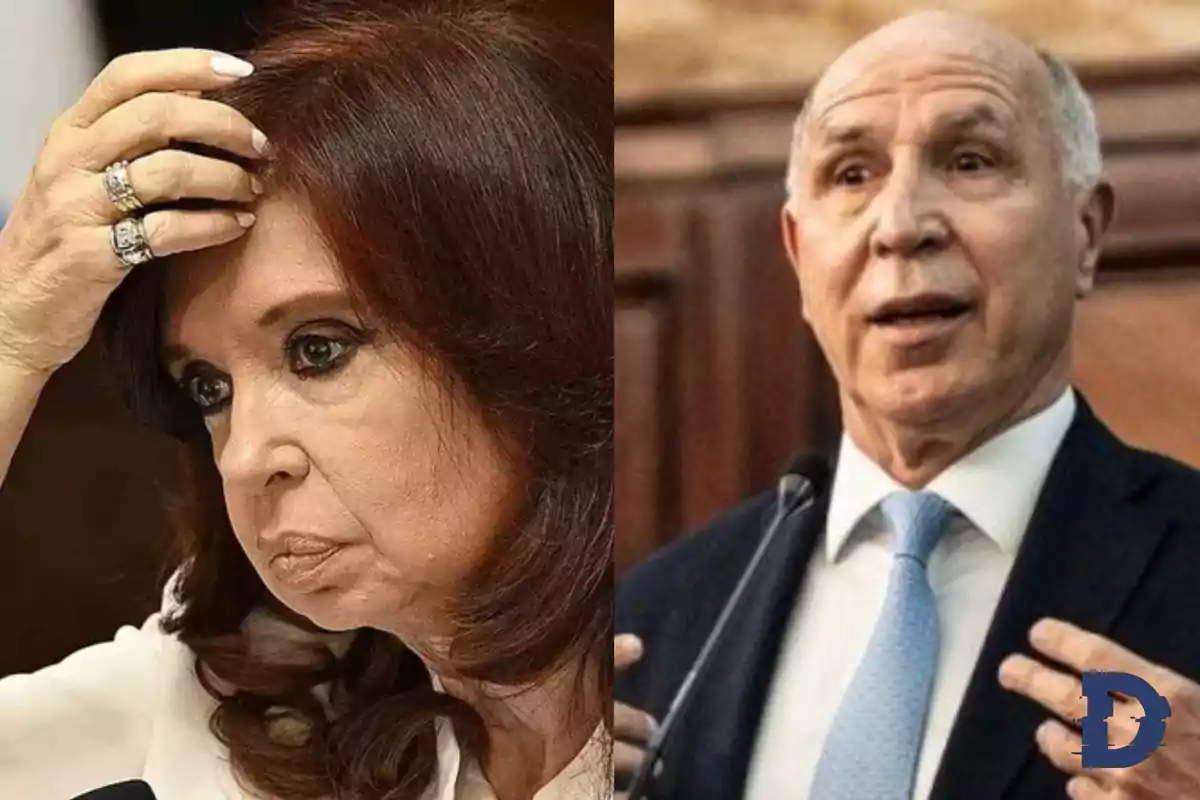
Desperate, Cristina Kirchner challenged Lorenzetti to stop the Vialidad case
The convicted stated that there is an attempt to 'ban' Peronism
Amid a critical judicial situation and with the electoral calendar running, Cristina Fernández de Kirchner resorted to an old strategy: questioning the impartiality of the judges.
Through her social media, the former president announced this Thursday the recusal of Supreme Court Justice Ricardo Lorenzetti. The Court member must intervene in the Vialidad case, where the former president was sentenced to six years in prison and a lifetime disqualification from holding public office.
A recusal with strong political connotation
"Today, in the 'Vialidad' case, we recused Ricardo Lorenzetti. His public statements (...) only confirm the veiled threats off the record published in the Clarín newspaper the day before the vote on Judge Ariel Lijo's appointment," wrote the former vice president, referring to an interview the judge gave on May 1st on América 24.
[IMAGE]{1000347}[/IMAGE]
Cristina once again interpreted statements as "a clear sign of bias" and linked them directly to an alleged maneuver to leave her out of electoral competition.
To reinforce her incoherent stance, she added: "These facts were denounced by a national senator in a public session and not only were they never denied, but almost a month later they are incredibly ratified by Lorenzetti himself in an interview."
In a clear discursive construction of political victimization, she stated: "In reality, nothing new under the sun: TO PROSCRIBE is the verb... and the subject, PERONISM."
However, the tone and timing chosen for this recusal seem to respond more to a desperate strategy to delay the inevitable: a judicial decision that could definitively leave her out of the political arena.
What Lorenzetti said and the stage of the case
In the interview with Luis Novaresio, Lorenzetti was clear: "Is the Court going to rule on the Vialidad case and Cristina?" —asked the journalist—. "Yes, of course," the judge replied. And he added: "We should do it before the election, because there is no reason to delay it further."
Currently, the Supreme Court has requested the opinion of the Attorney General, Eduardo Casal, on the appeals. Prosecutor Mario Villar seeks to increase the sentence and add the crime of illicit association.
If the highest court confirms the sentence, Cristina Kirchner will not be able to run for elections or hold public office again. A possibility that unsettles Buenos Aires Peronism, where there was still speculation about a potential legislative candidacy that would grant her immunity.
Cristina Kirchner cries lawfare and talks about "proscription"
The recusal of Lorenzetti is nothing more than a rehash of the same narrative with which Kirchnerism has tried to shield itself judicially for years: accusing the judiciary of acting with political motives. This time, however, the context is different: with the case already in its final stage and a firm ruling in sight, the move appears defensive.
Instead of responding to the facts for which she was convicted —the fraudulent allocation of public works to Lázaro Báez—, Cristina resorts to questioning the referee.
More posts: